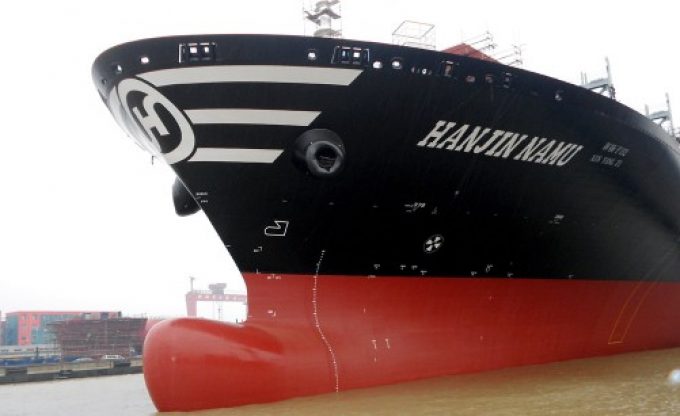Atlas Corp valued at $10.9bn in buyout deal
PRESS RELEASE Atlas Corp To Be Acquired By Poseidon Acquisition Corp For $15.50 In Cash Per ...

The collapse of Hanjin Shipping is a “huge nuclear bomb” that will have a far-reaching impact on the shipping industry, the supply chain and globalisation, according to Seaspan Corporation chief executive Gerry Wang.
In an interview with Bloomberg’s Trending Business, the containership owner’s chief suggested the line’s demise was “like Lehman Bros” had been to the financial markets in 2008.
“You are talking about $120bn worth of goods on ships that are stuck… there is a material impact to the supply chain and people are suffering ...
Volcanic disruption at Anchorage could hit transpacific airfreight operations
Macron calls for ‘suspension’ – CMA CGM's $20bn US investment in doubt
Trump tariffs see hundreds of cancelled container bookings a day from Asia
De minimis exemption on shipments from China to the US will end in May
Forwarders stay cool as US 'liberation day' tariffs threaten 'global trade war'
Mixed response in US to 'Liberation Day', while China leads wave of retaliation
Tariffs and de minimis set air freight rates on a volatile course
Overcapacity looms for ocean trades – with more blanked sailings inevitable

Comment on this article
David
September 14, 2016 at 7:07 amSeaspan’s greed seemed to make Hanjin Shipping go to the court recervership. So expensive charterage such as $43000 a day. In case of long term contract, Monthly one or annual one, charterage should be lower than 200,000 a month,
Other vessel lenders greeds including Seaspan killed Hanjin Shipping.
High port usage , High canal passage cost and High Stevedoring charges had important role to kill Hanjin shipping
leubh
September 14, 2016 at 7:40 amMany people in South Korea think Seaspan, Zodiac’s greed including other vessel owners will kill Hanjin Shipping, HMM in the future.
Reasonable charterage rates are as following.
US$43000 a daily contract charterage but in case of long term contract, US$ 200,000 a monthly, US$ 15,000,000 an annual. Daily contract, monthly contract, annual contract charterage should be different. Therefore, vessel owners greeds are killing Hanjin Shipping, HMM, Hyunai Merchant Marine and others. In Busan container terminal, Central Court in Korea lowers stevedore charges by half to resurrect Hanjin Shipping.